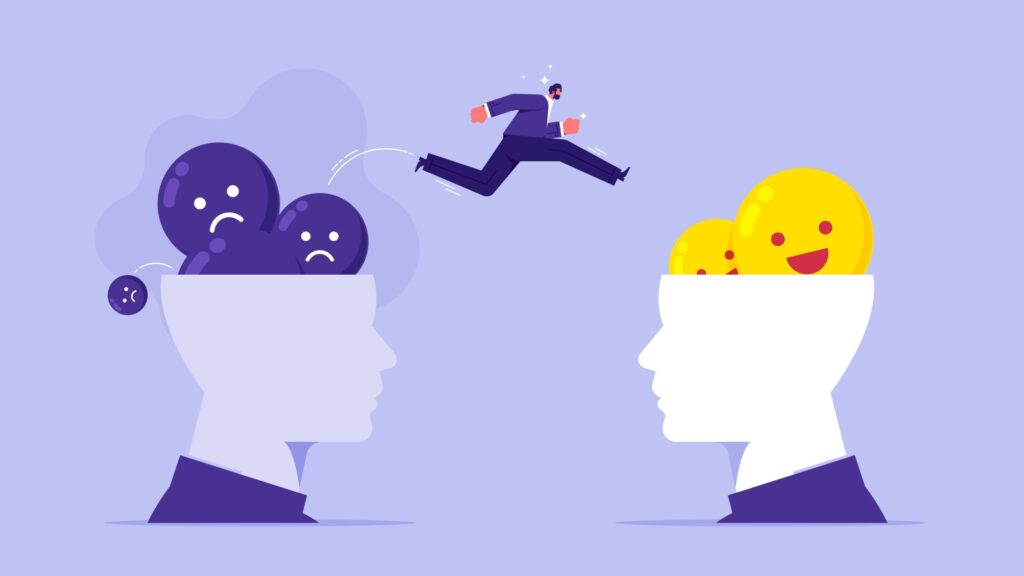Losing a job unexpectedly can feel like having the rug pulled out from under you. It can turn your world upside down, including financial stress, fragility of your confidence, sense of belonging or purpose, and daily routine.
While a job loss is hard, it does not have to mean the end of the world. With thoughtful consideration, it can actually be a new beginning. Job losses can open up new doors and opportunities that you would have never considered.
You can begin your journey by recognizing your feelings, keeping a positive mindset, and taking steps towards your next opportunity. You have a lot of choices, from how to stay busy (and maintain your sanity) to managing your finances to staying well.
We are here to support you whether you are looking for emotional support, career guidance, or financial stability to help you reclaim control of your life. A job loss is a setback, but with the right mindset and strategies, it can also be the beginning of something new.
Table of Contents
Impact of Sudden Job Loss
Sudden job loss can impact people and their relationships in various ways.
The Emotional Toll
The loss of a job can bring a rush of emotions. The first feeling is often surprise – quickly followed by worry and anxiety –and possibly very low self-esteem. Grief is a normal response to any loss and losing a job is no different.
Let’s face it; losing a job affects more than just your ability to pay for groceries. It affects your identity and your confidence and changes your ability to create proactive control over your own life.
Job loss can trigger a reaction to mental health issues. Worrying about bills, how to pay off debt, and finding a new job often results in overwhelming stress. If you are feeling anxious, depressed, and have an overall sense of a loss of purpose, it is easy to lose motivation in your job search. Losing a job can feel like losing any significant role in your life, and in many cases, it can feel like a personal failure, regardless of whether it was company downsizing or an economic downturn. When looking for a new job, you may second-guess yourself and have hesitation submitting applications.
Unhealthy Habits
Stress and uncertainty after abrupt job loss can lead some to unhealthy choices to cope with their emotional distress. Individuals might turn to drugs or alcohol to numb their feelings. Without intervention, substance use can escalate into more negative outcomes related to increasingly poor coping, dependence, and bad mental health overall.
Stress eating, or consuming unhealthy foods in excess, can give short-term pleasure or relief but often contributes to poor physical health and potentially further emotional distress. Oversleeping can be one of the symptoms of depression or anxiety related to job loss. This can impact motivation and productivity when it matters most.
Family and Community
Job loss not only impacts the individual losing the job; it can have far-reaching impacts on a household because of increased financial strain. Difficulty managing expenses such as rent, mortgage payments, and even basic needs can be psychologically damaging for family members as they navigate stressors aggravated by their loved one’s job loss.
Additionally, both emotional stress and frustrations from supporting a partner during this stressful time can worsen feelings of stress and worry regarding their future as a couple. Financial insecurity can also lead to increased conflict about budgeting, planning, and financial decisions as a couple.

It can be even more challenging to navigate the multiple emotional struggles of someone who is unemployed. If a couple is dealing with underlying negative emotions, it could potentially lead to emotional withdrawal from one another or communication breakdowns.
Children are very sensitive and can pick up on their parents’ stress. A parent losing a job can create an anxiety-inducing environment. Changes in routine or reduced activities, whether after-school or otherwise, may also have an emotional and academic effect on children. This potentially adds tension between family members.
Job loss can place strain on friendships and social networks because people may withdraw socially out of embarrassment or feelings of inability. Friendships may be complicated because friends may not know what to say. Some may not know how to help.
How to Recover From Job Loss
Let’s explore ways to navigate this tough time and emerge stronger and improved.
Let Yourself Grieve
It can be painful to lose a job. It’s normal to feel hurt, disappointed, or even frightened. Grieving your loss doesn’t mean denying it or burying it. Instead, grieving is a process where you can experience the way it feels without embarrassment or shame.
Writing about your feelings can be very therapeutic. If you’re angry about what happened, write it down! Write about what you wish you had said or what you wish had happened differently.
By voicing your frustrations–even privately–you can clear your mind. Yes, you might still contemplate the “what ifs” for a while, but if you come to terms with the losses you have sustained, it will direct your energy to what is next. The sooner you are able to remember what is next, the sooner you will be able to move in that direction and take steps to rebuild your career.
Reframe and Develop a Positive Outlook
Losing a job certainly can take a hit to your confidence and it is easy to think it defines your value. Negative self-talk about the incident and blaming oneself is always wrong and counterproductive. Instead of spiraling down that path, investigate those thoughts. If you keep seeing yourself as a loser, remind yourself of the bigger picture. There is a reason you lost your job. It could be due to the company downsizing, resource reallocating, or other factors over which you had no control.

Consider this as a detour, not a dead end. Everyone who is successful has had to navigate career hurdles and use them to their advantage. Ask yourself, are there takeaways? Maybe it is the motivation to move on and explore something new or to enhance your skill set. Finding small acts of goodness in a difficult period of your life will go a long way in determining your coping path.
Reach Out
You may want to withdraw physically or emotionally, especially if you’re feeling embarrassed or overwhelmed. While it may feel like the right thing to do, withdrawing can only make it harder. Please reach out to friends, family, or even your former colleagues.
Sometimes, being able to talk with someone who can listen and not judge can be very relieving. It’s also important to know that you don’t have to have the answers right away, and you certainly don’t have to go through this alone.
Reaching out is important for emotional support, but it can be equally important as it can help you access potential opportunities or clear obstacles.
A casual conversation with a friend or colleague can lead to a job lead or a freelance opportunity! If the emotional weight is too great, seeking strategies and guidance from a licensed counselor or therapist can help you gain clarity and support to help you cope.
Keep Yourself Engaged
Being fired is likely to make you feel as though you have no purpose, but staying busy and engaged with meaningful activities can help restore a sense of purpose. Perhaps you might want to join a book club or engage in a sports league. Just being in contact with other people pursuing the same things can be meaningful.
There are also job clubs, which can serve the purpose of emotional support but, in addition, provide you an opportunity for networking and job leads. The right conversation at the right time can lead to opportunities that you did not expect or consider.
Hobbies, whether you are starting an old one again or a new one, will hopefully serve as a reminder that you are not just the job you just lost. You could try getting back to playing a musical instrument, learning a new language, or even engaging in creative activity (i.e., writing, painting, photography) that starts over just for you.
Spending time outdoors is a great stress reliever. Fresh air and new surroundings can help you redefine your perspective. If you are still searching for a sense of purpose, don’t forget the opportunity for volunteering. Helping others not only provides a sense of purpose, but volunteering may also provide unexpected openings and career opportunities.
Take Care of Your Health
Your physical and mental well-being are crucial during this transition. Exercise is an excellent way to relieve stress. It releases endorphins that boost your mood and confidence. Even a short 10-minute walk can elevate your mood for several hours. You may also find some rhythmic exercises are especially helpful, such as running, dancing, swimming, or martial arts. These activities keep both your mind and body engaged.
Your diet can have a great impact on your mood and behavior. While you may be inclined to consume high-sugar and refined carbs, reducing their intake can help your energy levels stay balanced.

You should aim to consume more nutrition-dense foods like omega-3 (salmon, flaxseed, walnuts). This helps in improving mood. You should limit caffeine, nicotine, and processed foods, as they can contribute to anxiety. While alcohol might provide temporary relief, too much can increase stress once the effects wear off.
In addition to diet and exercise, sleep must also be a priority. A good sleep regime should be around 7–8 hours a night. If anxiety keeps you up at night, try relaxation techniques like deep breathing, meditation, or yoga.
Manage Your Finances
One of the biggest concerns after job loss is financial stability. The key is to take control early. Start by reviewing your income and expenses to create a realistic budget. Identify essential expenses and look for areas where you can cut back without significantly affecting your well-being.
Explore financial assistance options such as unemployment benefits, government support programs, or even community resources that might be available to you. It’s a good time to rethink long-term financial habits. If possible, set aside a small emergency fund. Even a little can provide a cushion as you transition to your next opportunity.
Taking a strategic approach to money management can provide peace of mind, giving you the space to focus on your job search without unnecessary financial stress.
It’s Not Over Yet!
Sudden job loss can be overwhelming, but it doesn’t have to define your future. By allowing yourself to grieve, staying engaged, taking care of your health, and managing your finances wisely, you can turn this challenge into an opportunity for growth. Every setback carries a lesson, and every closed door can lead to a new path. Stay connected, keep learning, and embrace the journey ahead. Your next opportunity may be just around the corner, and with resilience and determination, you’ll be ready to seize it.
Visit EvolveDash today for more practical tips on how to manage work setbacks and emerge stronger than ever.
FAQs
How long should I allow myself to grieve a job loss?
There’s no set timeline, as everyone processes loss differently. The key is to acknowledge your emotions but avoid dwelling on them for too long. Give yourself time to adjust, but set a goal to start taking action when you feel ready.
What are the best ways to stay motivated during a job search?
Set daily goals, break your search into manageable tasks, and celebrate small wins. Stay engaged with hobbies, volunteer work, or professional networking to maintain a sense of purpose and routine.
How can I manage finances effectively after losing my job?
Start by assessing your expenses and creating a budget that prioritizes essentials. Look into unemployment benefits, temporary gig work, or freelance opportunities to stay afloat while searching for full-time work.
Should I tell people I lost my job?
Yes, being open about your job search can lead to new opportunities. Friends, family, and former colleagues can offer emotional support or job leads that might help you land your next role.
How do I stay positive after being laid off?
Focus on what you can control. Work on improving your skills, networking, and exploring new career paths. Reframe job loss as a temporary setback rather than a failure, and remind yourself that new opportunities are always within reach.



















